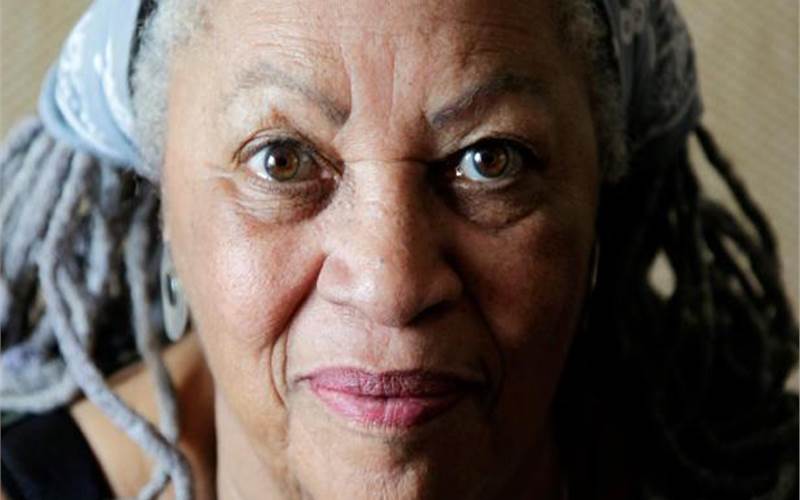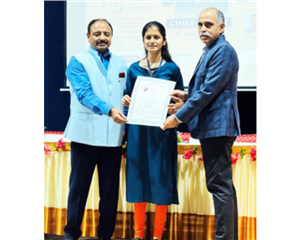Nobel Laureate Toni Morrison, the legacy she leaves behind
Celebrated American author, and the first black woman to win a Nobel Prize in literature, Toni Morrison, passed away on 5 August. She was 88.
07 Aug 2019 | By Dibyajyoti Sarma
Morrison, whose stories have a strong historical and cultural base and a style, structure and tone that is specifically African American, was one of the few women to have received the Nobel Prize for literature. The announcement of her 1993 award cited her as a writer “who, in novels characterised by visionary force and poetic import, gives life to an essential aspect of American reality”.
In her acceptance speech Morrison emphasised the importance of language “partly as a system, partly as a living thing over which one has control, but mostly as an agency — as an act with consequences”.
Morrison was the author of 11 novels as well as children’s books and essay collections. Among them were celebrated works like Song of Solomon, which received the National Book Critics Circle Award in 1977, and Beloved, which won the Pulitzer Prize in 1988.
Morrison was one of the rare American authors whose books were both critical and commercial successes. Her novels appeared regularly on the New York Times bestseller list, were featured multiple times on Oprah Winfrey’s television book club and were the subject of myriad critical studies.
She he was editing other writers for Random House in New York when she began to feel the lack of novels which spoke to readers such as herself. Beginning with The Bluest Eye (1969), her novels portray the psychic and social lives of African American women, as well as men, covering the trauma of slavery and its economic and psychological consequences during and after the 19th century.
Her second novel, Sula (1973), provides a terse and vivid contrast between two black women, one a rebel and the other a conformist, whose stories and struggle to come to terms with one another and their community set the pattern for some of her later fiction.
Song of Solomon (1977) is wider ranging historically and geographically and, unusually within Morrison’s oeuvre, has a black male character, Milkman Dead, as its main protagonist. Here the elements of magic realism suggested in Sula are developed and Morrison draws on the African American myth of slaves escaping by flying away as an image of Milkman’s discovery of his roots in a southern African American tradition.
For many, Morrison’s greatest achievement is Beloved (1987), the first novel in a trilogy chronicling black American small town and urban communities over the past 150 years. It is based on a factual incident that she uncovered while preparing a historical collection, The Black Book (1974), and explores the terrible impact of slavery, its brutality and its dehumanisation, on a young mother who murders her child to prevent her being repossessed by the slave-owner from whom she has escaped.
She won the Nobel Prize following the publication of Jazz (1992), a novel set in Harlem in the 1920s concerning a love triangle in which a husband murders his teenage mistress, which employs a narrative structure akin to jazz, with the opening statement of a theme and a series of elaborations. Paradise (1998) returned to the small-town setting in rural Ohio that had featured in Beloved.
Five years later, she published Love (2003), a family saga that has some similarities to The Song of Solomon in that it weaves its story around the lasting impact of a wealthy black patriarch and entrepreneur, Bill Cosey, the owner of Cosey’s Hotel and Resort, whose fortunes rest on the need for a holiday resort for black people in segregated America. Like The Song of Solomon, this novel records the historical and cultural changes affecting African Americans from the 1930s till the 80s, before, during and after the civil rights movement.
Morrison’s ninth novel, A Mercy (2008), is set in 1682 in the early years of colonial Virginia, where English, Dutch, African, Portuguese and Native Americans compete to survive and rule. Her next novel, Home (2012), moves forward to the 20th century, portraying the life of a Korean war veteran in segregated 1950s America and his attempt to save his sister from medical experiments carried out by a white doctor.
God Help the Child (2015) returns to the theme of her first novel and traces the life of a young woman in the fashion industry tormented by memories of her mother’s dislike of her dark skin.
Morrison sought to change not just the content and audience for her fiction; her desire was to create stories which could be lingered over and relished, not “consumed and gobbled as fast food”, and at the same time to ensure that these stories and their characters had a strong historical and cultural base. She also compared her writing and its technique to music whose enjoyment and significance can change on a second hearing, and which has a style, structure and tone that is specifically African American.
Born Chloe Ardelia Wofford in Lorain, Ohio, she was the second of four children of working-class parents. Her parents encouraged her early interest in literature, which encompassed Austen, Flaubert and Tolstoy. But an interest in narrative and the African American tradition was also nurtured by her father, who told her stories and anecdotes he had heard as he grew up in the south. She graduated with honours from Lorain high school and studied humanities at Howard University in Washington DC, the most prestigious of the historically black universities founded in the 19th century.
At Howard she changed her name from Chloe to Toni (having taken the name Anthony on becoming a Roman Catholic at the age of 12), apparently because she found that people constantly mispronounced “Chloe”. However she later regretted the name change, saying in 1992: “I am really Chloe Anthony Wofford. That’s who I am. I have been writing under this other person’s name. I write some things now as Chloe Wofford, private things. I regret having called myself Toni Morrison when I published my first novel, The Bluest Eye.”
In 1954 Morrison went on to study for an MA in English at Cornell University, writing a dissertation on suicide in the works of William Faulkner and Virginia Woolf. Thereafter she taught at Texas Southern University in Houston, and then Howard University.
In 1958 she married Harold Morrison, an architect. They were divorced in 1964, and Toni moved to New York with her two sons, Harold and Slade, to become a senior editor at Random House, a position she held for 20 years.
In 1989, following the success of Beloved, Morrison was appointed professor of humanities at Princeton University. She was a visiting professor at Yale University and Bard College, and found teaching and being with young people an important way of “staying current”.
Her 1990 series of Massey lectures at Harvard were published as Playing in the Dark: Whiteness and the Literary Imagination (1992), and explore the construction of a “non-white Africanist presence and personae” in the works of Poe, Hawthorne, Melville, Cather and Hemingway. Twenty-five years later, a few months after the election of Donald Trump as US president, Morrison published The Origin of Others (2017), essays on the “literature of belonging” based on her Norton lectures given at Harvard in 2016.
She is survived by her son Harold, and three grandchildren.
(Country The Guardian)













 See All
See All